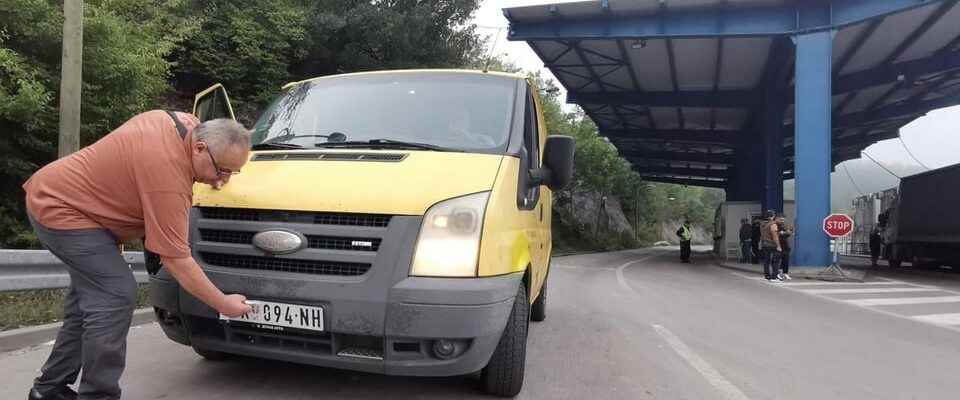contents
The civil servants of the Serb minority in Kosovo have resigned. A tactical maneuver from Belgrade?
This is what the argument is about: Tensions between Kosovo and Serbia are rising again over the license plate dispute. In protest, representatives of the Serb minority in North Kosovo resigned from their posts in the state: police officers, parliamentarians, mayors and judges. The representative of the Kosovo Serbs in the government has also resigned from his ministerial post. They want to force the country-wide introduction of Kosovo license plates to be suspended in the Serb-populated north of Kosovo. So far, people drive around there either with Serbian license plates or with expired license plates from the former UN administration.
The Kosovo Serbs in the north: The boycott only affects the Kosovo Serbs in the north, a minority of 35,000 to 40,000 people. Most Kosovo Serbs live in enclaves in the south and have long since accepted the license plates – out of necessity because they have no other choice. In North Kosovo, on the other hand, it remains a symbolic question, because the people in their settlement area, which is directly adjacent to Serbia and connected, still feel part of Serbia, as the journalist Thomas Roser explains in Belgrade.
Legend:
The number plate dispute has been smoldering for months. A driver pasted over the nationality on the license plate when crossing from Kosovo to Jarinje in Serbia on September 1. On August 27, Serbia and Kosovo, mediated by Brussels, agreed to free movement between the countries.
imago images/Sputnik Serbia
The potential for conflict: The withdrawal of the Kosovo Serbs from the Kosovan institutions has the potential to further intensify tensions on the ground, warned EU foreign policy chief Josep Borrell. This step certainly does not contribute to relaxation, says expert Roser. However, he thinks the scenario of new armed conflicts that Belgrade likes to paint is exaggerated: It is not the first time that the Kosovo Serbs are withdrawing from the government. It is probably a tactical maneuver by Belgrade. President Aleksandar Vucic loves the permanent crisis in order to rally the frightened Serbian people behind him and distract them from domestic problems. These include rising prices and high inflation, but also increasing pressure from the EU to take on the sanctions against Russia.
Other possible motives: At the same time, according to Roser, the withdrawal of the Belgrade employees could be a means of pressure in the negotiations with the EU and Pristina: namely, to delay the introduction of the license plates and to enforce an unimplemented agreement of the Brussels agreement of 2013 – the creation of an association of Serbians Kosovo municipalities. Serbia wants such an association with its own parliament. Kosovo is defending itself and, with regard to Bosnia, is afraid that a state within a state could emerge again.
Dangers for Serbian minority in Kosovo: Life is already difficult enough for the Kosovo Serbs in the isolated smaller enclaves in the south, says Roser. Any deterioration in relations is felt by the minority. Be it through hostilities, attacks or destroyed cemeteries by Albanian nationalists. In the north, where the minority still feels part of the motherland, things are a little different. But they, too, are struggling with the sign dispute: Serbs who refuse to use Kosovo license plates face penalties. Those who screw on the signs must fear revenge actions by nationalist compatriots. Several cars belonging to alleged traitors have already been torched in northern Kosovo.
